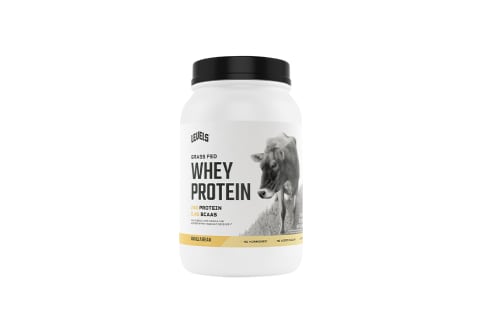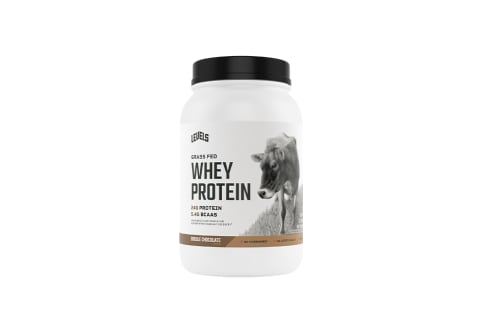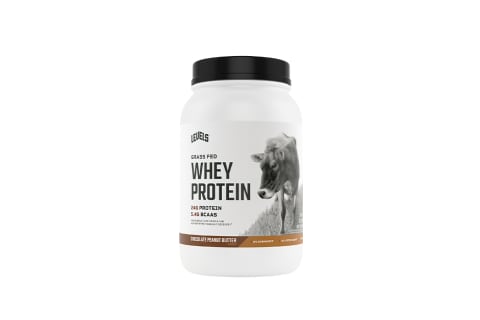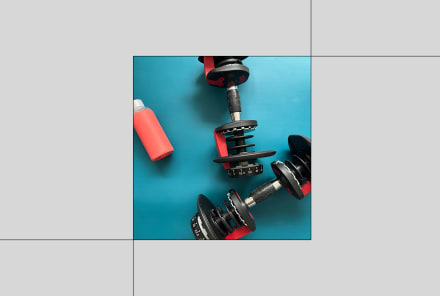Advertisement
How Do You Choose The Right Whey Supplement? Start With This List

Whey protein powder has long been a staple in the supplement cabinet. That's because we need protein to survive and thrive. It's a well-known building block of our muscles, bones, and tissues. But protein also plays a critical role in our metabolism, brain function, and immune system.
Ideally, we'd be cooking up protein-packed meals every day. But IRL, most of us need help reaching our recommended intake—and that's where a whey protein powder comes in, like Levels (found at The Vitamin Shoppe).
But first: Why whey?
Whey is one of the two main proteins found in milk (casein is the other). When milk is manufactured into products like yogurt or cheese, there's a watery liquid left over once the curd is separated—that's whey. From there, liquid whey is pasteurized and processed into either a concentrate or isolate form, eventually ending up on your shelf.
Whey is considered a source of high-quality protein (especially when it's a grass-fed product). Whey has won this status largely because it contains all nine essential amino acids1, making it a "complete protein." Further, whey has a dense nutritional profile, offering key vitamins and minerals like B vitamins, calcium, potassium, iron, magnesium, zinc, and beyond. As one of the most studied sources of protein, whey has been found to improve body composition2, increase protein metabolism, and support exercise recovery3.*
No doubt, whey protein is a powerhouse. But there's a caveat: Not all whey protein powders are created equal. Of all the brands and products out there, how do you know which one to choose? It's all about reading labels and knowing where your whey came from. This list will give you the gist:
1. Start with nutrients
Naturally, you'll want to choose a product that's packed with protein. But you can also look for branched-chain amino acids3 (BCAAs)—essential amino acids that are critical for building lean muscle and supporting post-workout recovery.* Levels Whey Protein contains 24 grams of protein from whey concentrate (the least processed form of whey). But it also offers 5.4 grams of BCAAs—check and check.
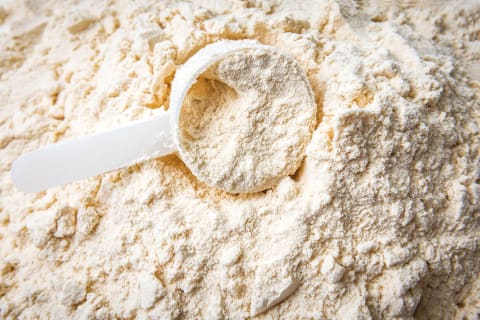
2. Look for real (and minimal) ingredients
Real ingredients taste better, but they also feel better. When you choose a whey protein, be mindful of artificial flavors, fake sweeteners, and fillers. Take a minimalist approach. Levels Whey Protein, for example, only incorporates ingredients that are necessary—like vanilla, natural sweeteners, and hormone-free whey. In fact, there are only seven ingredients on their label (and yes, you'll be able to pronounce all of them).
3. Go for grass-fed
The source of your whey protein matters. A grass-fed whey product (hello again, Levels) comes from grass-fed cows. Instead of the corn and soy fillers that cows are fed on industrial farms, grass-fed cows enjoy a natural diet rich with organic and plant-based foods. Cows with a higher quality of life yield a high-quality product, simple as that.
4. Keep it real
We know that feeling (and performing) our best is directly associated with our protein intake. But in this busy and modern world, it's hard to stay on top of those grams. Thankfully, we can always count on whey protein to help close the gap.
There's no shortage of whey options out there, but some words of wisdom: Keep it real. This is the philosophy that inspired Levels Whey Protein—or as they say, nothing fake, ever. So if you're looking for an option that's made with minimal ingredients, without sacrificing flavor, head to The Vitamin Shoppe and look for Levels. Trusted by athletes, fitness enthusiasts, and daily grinders everywhere… You're about to raise the bar on your daily scoop.

